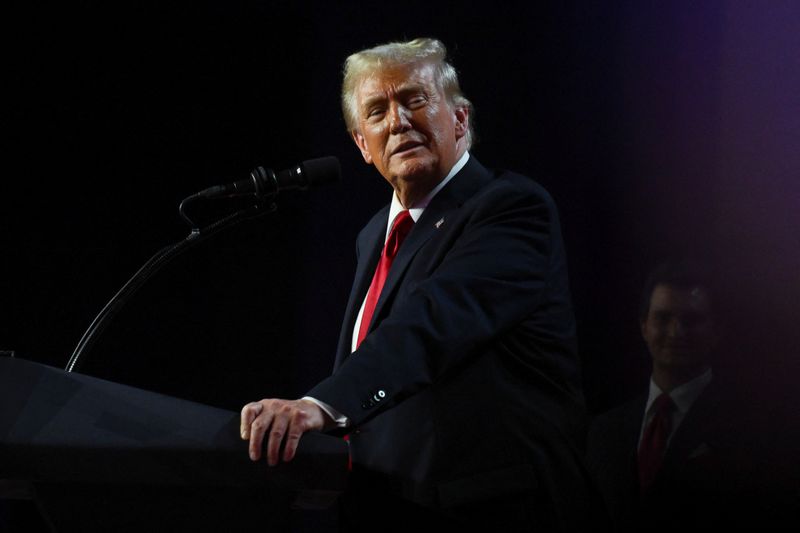Donald Trump’s potential victory in the U.S. presidential election is anticipated to have substantial and immediate economic effects worldwide. As global leaders offer congratulations, Trump asserts he holds a “powerful mandate,” signaling his intent to implement his economic agenda, which includes rising trade tariffs, deregulation, and increased oil drilling. The Republican Party’s control of the Senate and potential majority gains in the House of Representatives may facilitate Trump’s legislative proposals and key appointments. However, experts warn that his fiscal policies could significantly worsen the U.S. economic deficit, posing severe implications for U.S. Treasury markets and global financial stability. Economists express concerns about the disregard for established economic norms and institutions, arguing that Trump has emerged as an underappreciated threat to global market dynamics.
Central to Trump’s economic strategy are proposed import tariffs, including a universal 10% tariff on all foreign goods and an alarming 60% on Chinese imports. These tariffs are expected to stifle global trade, hinder growth, and strain public finances internationally. The heightened costs of imports will likely lead to increased inflation in the U.S., which could compel the Federal Reserve to tighten monetary policy further. Currently, the International Monetary Fund has already deemed global economic growth as weak, suggesting that additional pressure from U.S. tariffs could undermine its predictions for the following year. As firms typically transfer import costs to consumers, inflationary pressure stemming from tariffs could force the Fed to maintain higher interest rates or consider raising borrowing costs even more to counteract inflation.
Higher inflation rates could curtail domestic demand and necessitate a restrictive monetary policy response, adversely affecting overall growth. Emerging markets that rely on dollar-dominated funding may find borrowing costs increasing amidst such a policy shift, exacerbating their economic challenges alongside diminished export opportunities. As the U.S. seeks to implement larger tariffs on imports, especially from China, the repercussions could proliferate globally, potentially pushing China—being the world’s largest exporter—to seek alternative markets for its goods, particularly in Europe, as it aims to alleviate the impact of U.S. tariffs.
The resultant economic environment could encourage swift actions from central banks across the globe, particularly in trade-dependent economies, where sentiment is likely to plummet quickly. Anticipating the fallout, the European Central Bank might hasten its rate cuts towards a lower neutral rate in response to U.S. tariff policies, potentially driving rates below neutral levels. This reaction risks a retaliatory cycle from governments facing U.S. import duties, which would further inhibit trade and stifle global growth. Simultaneously, the anticipated rise in U.S. interest rates alongside lower global borrowing costs could bolster the dollar’s position, jeopardizing emerging markets since a considerable portion of international debt is denominated in dollars.
Mexico appears particularly vulnerable to the ramifications of Trump’s policies. Rhetoric around closing borders and significant increases in import tariffs could exacerbate Mexico’s existing economic troubles, including cartel-related violence and issues stemming from the government’s inability to manage these societal challenges. In contrast, Brazil may reap benefits from increased trade with China, especially if it replaces U.S. soybean imports with Brazilian alternatives in light of Trump’s aggressive trade policies. However, Europe could face considerable additional burdens, especially concerning defense spending, if U.S. support for NATO is diminished. With ongoing European reliance on U.S. military presence amid heightened geopolitical tensions, particularly concerning Russia’s actions in Ukraine, an unsustainable financial landscape would emerge, forcing countries to balance their defense needs against economic stimuli.
Trump’s deregulation agenda may take longer to influence international markets, but one immediate concern involves potential withdrawal from widely-accepted regulatory frameworks, like Basel III. As these rules are set for implementation in January, global policymakers are deliberating their future, hinging on whether the U.S. chooses to participate. This uncertainty generates additional risk, as a retreat from established global standards could unravel years of progress in creating resilient banking systems worldwide. Overall, Trump’s economic approach suggests a departure from existing norms that institutions and global economies have relied upon, laying the groundwork for substantial volatility in both domestic and international contexts. The immediate and long-term economic landscapes will vastly change, demanding vigilance from governments, central banks, and financial markets worldwide as they grapple with the implications of Trump’s presidency.

